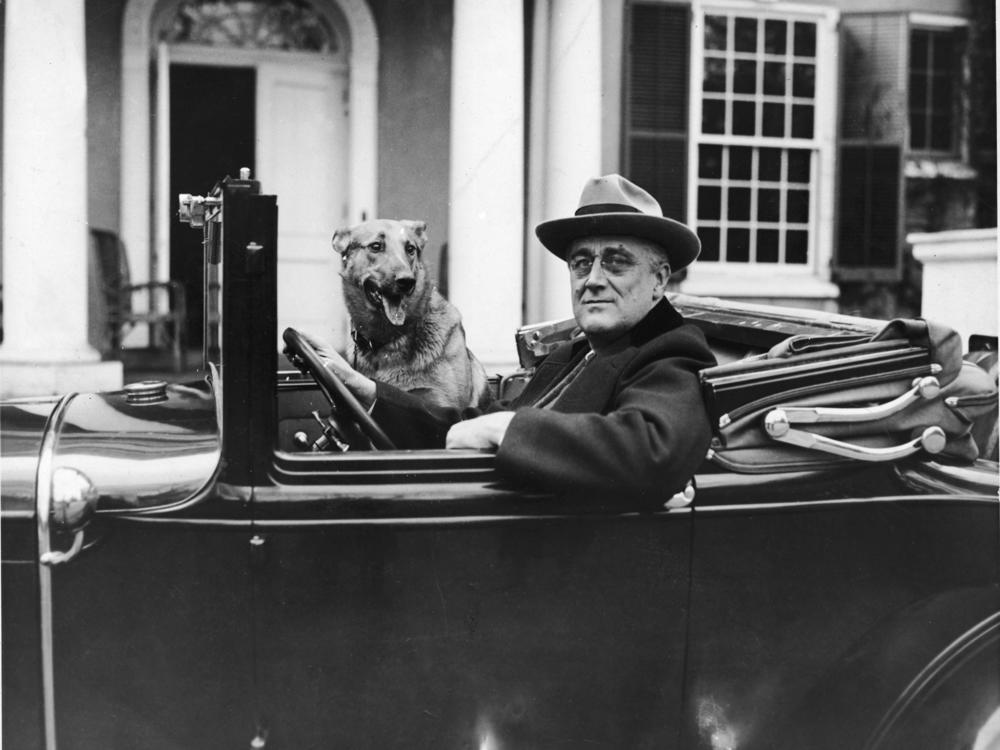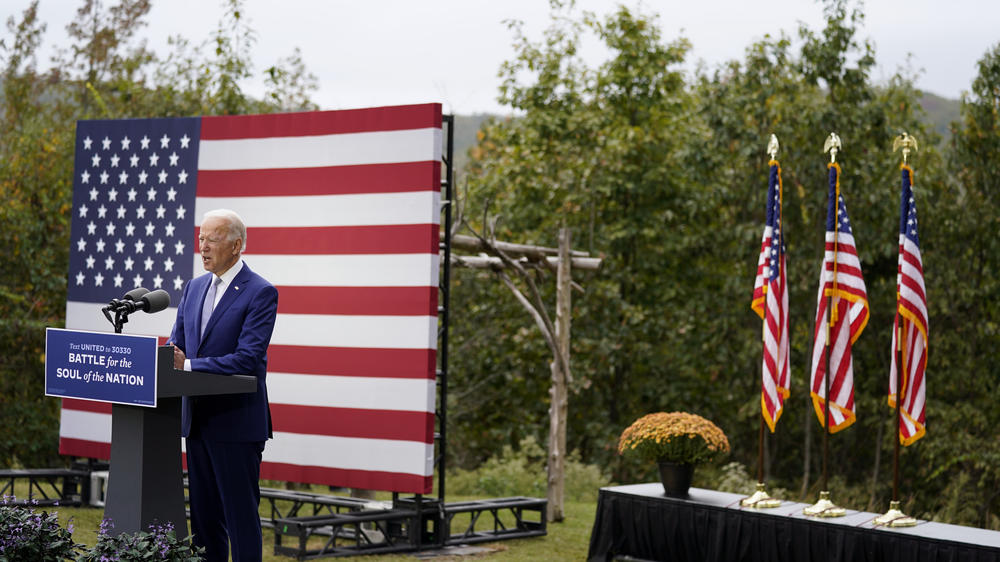Section Branding
Header Content
As Biden Prepares To Take Office, FDR's Presidential Transition Offers Lessons
Primary Content
When President-elect Joe Biden addressed the nation Monday evening, he said the word "democracy" nine times. He accused President Trump of "an unprecedented assault on our democracy," declared that "democracy prevailed" and in his final words said: "May God protect our troops and all those who stand watch over our democracy."
The speech came after the Electoral College confirmed his election victory, a result unchanged by weeks of court challenges. It also pointed to a larger theme of his coming presidency.
Biden has vowed to rescue democratic institutions from partisan dysfunction. He has pledged to be the president for all Americans — a population that includes Americans who voted for Donald Trump because they felt the system was failing, and also Americans who felt Trump was a symptom of its failure.
How might Biden restore faith in that system? He may be able to draw some lessons from a president Biden often says he wants to emulate: Franklin Delano Roosevelt.
Biden, his staff and his surrogates have publicly compared their challenge to those facing FDR, when the 32nd president assumed office. This moment, Biden said on CNN on December 4, was "not unlike what happened in 1932," the year of FDR's election in the middle of the Great Depression. Then, as now, Biden said, many Americans have "real anxiety" about their place in a changing economy.
FDR historian Robert Dallek says that Roosevelt himself saw his challenge as a fight for democracy.
Dallek notes that "in the early 1930s, you had a rising crescendo" of authoritarianism as countries around the world struggled with economic collapse. Adolf Hitler rose to power in previously democratic Germany. The Soviet Union seemed like "a model for how to deal with economic difficulties" with a state-controlled economy.
"There was a lot of sentiment that maybe this was what the United States needed to do and to move on from democracy," Dallek says, "but Roosevelt would never go there."
Roosevelt's New Deal economic programs restored confidence in banks and other key institutions, put millions of unemployed Americans to work and established durable social programs such as Social Security. And then, the United States turned its industrial might to crushing Nazism and fascism in World War II. "What gives [FDR] such a commanding place in history is the fact that he was right," Dallek says.
Roosevelt's efforts were not universally embraced. The New Deal generated fierce conservative opposition. Dallek says that Republican-leaning newspapers wrote that "Roosevelt was actually killing democracy, and that he was setting up an authoritarian bureaucratic state." The Supreme Court's conservative majority also struck down several of FDR's initiatives.
After defeats in court, Roosevelt floated an idea that proved deeply unpopular: the "court-packing" plan of 1937, which would have allowed FDR to appoint additional justices in line with his views. "It was seen as an attack upon the country's checks and balances and the traditional system of maintaining democracy," Dallek says.
According to Dallek, FDR was more successful when he deliberately pursued popular initiatives; he rarely approved any action that he felt would be a close call with the public. But this led to some of the darkest compromises of his more than 12 years in power. Majority rule in the 1930s meant bending to Southern segregationists; New Deal housing programs were segregated, with damaging effects on Black homeownership and wealth that have persisted for generations. When Jews fled Germany in the 1930s, FDR's administration offered little support. He deferred to anti-Jewish, anti-immigrant and isolationist sentiment.
After World War II began in 1939, Roosevelt waited for years to enter the fight, knowing that he lacked an overwhelming majority of public support. The United States remained officially neutral until December 1941, when Japan's attack on Pearl Harbor united the country in favor of war.
So what lessons could Joe Biden draw from FDR? "He has to command the airwaves," Dallek says. "However he moves forward, he has to be mindful of bringing the public along with him."
With the seriousness of the challenges ahead of him, bringing the public along may not be enough for Biden. But these circumstances aren't necessarily as unprecedented as they seem.
"It's not so far removed from what Franklin Roosevelt faced," Dallek says. "He understood, as he said in his '33 inaugural address, '[This nation is asking] for action and action now.' And I think the same adage will be in the forefront of Joe Biden's mind."
Copyright 2020 NPR. To see more, visit https://www.npr.org.


